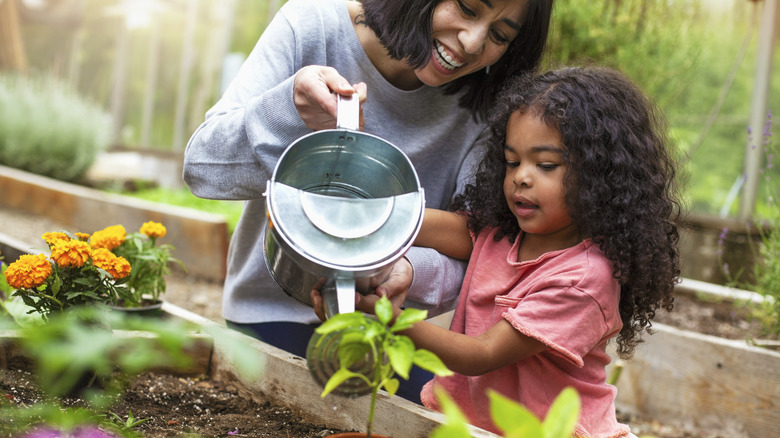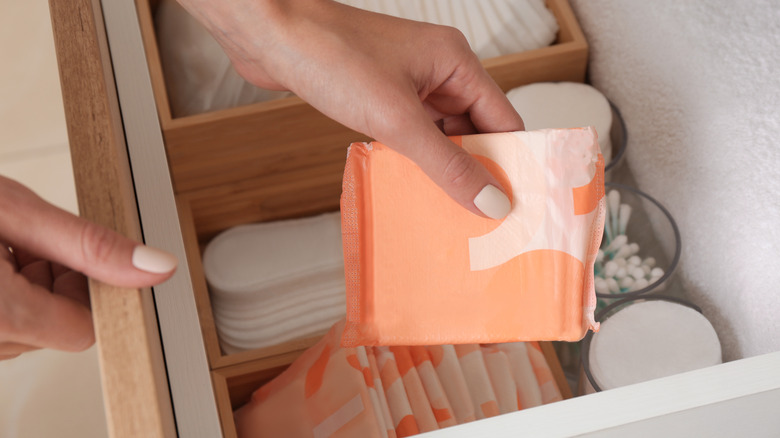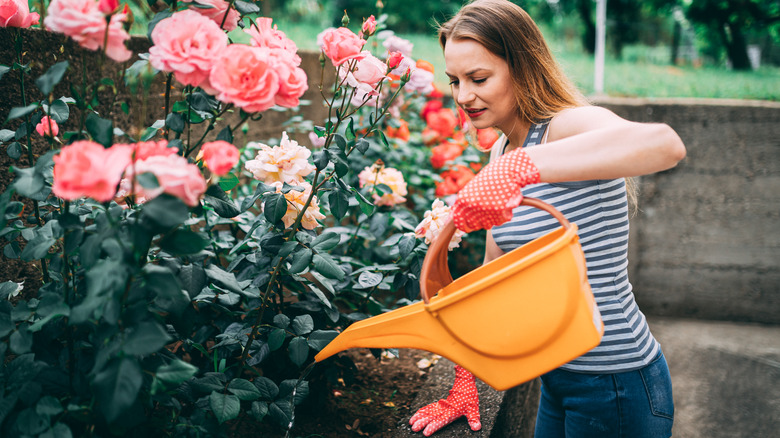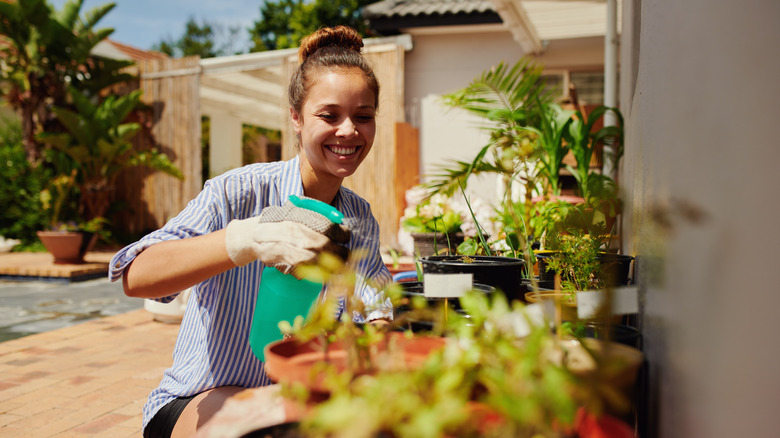Can You Use Period Blood To Water Your Plants? A Gardening Expert Weighs In
Blood in various forms has been used in gardens throughout history. Records of antiquity show that the blood of animal sacrifices (and even humans) was mixed with water and used to fertilize gardens across various civilizations. For example, an ancient book on fertilizer called "Kitab al Falaha" combined practices from Romans, Greeks, and other civilizations in an entire chapter about using animal and even human blood as a fertilizer to "revive some trees and plants." This unique application continues into modern times as blood meal — an ingredient in many natural fertilizers. This byproduct of the meat processing industry is sterilized, dried, and ground into a powder to make it easily accessible for plants as fertilizer. The question we ask now is, if blood has been used in gardens since ancient times, does this mean period blood can also be used? And if so, how?
Historically a taboo topic, the "period positive" movement is bleeding over into other areas of life, including gardening. (Please forgive the pun.) Menstruation has been — and in some cultures remains — considered unclean. Thankfully, in healthy women, period blood is just as hygienic as the rest of the blood in your body (via The Chatty Girl, University of Texas at Austin). If you are considering hopping on this unusual trend, here is information about how to put your monthly flow to work in your garden.
What is in menstrual blood?
As a master gardener who has utilized a diverse array of soil amendments and fertilizers to get the most out of our garden, the reason blood is used this way is no mystery: It's densely packed with nutrients. This fluid keeps our bodies alive, so it must be pretty well-stocked. When used as fertilizer, it can help plants by providing all three necessary macronutrients: nitrogen, phosphorus, and potassium. Since the fluid produced by menstruation contains about 36 percent blood, an argument can be made for its usefulness around plants. Of course, there is 64 percent "other product" in this fluid, including tissue debris and mucus.
The chemistry of period blood is not the same for every woman. Iron, sodium, and calcium levels vary depending on many factors. These variations can make the results of using period blood on plants unpredictable. One concern is the amount of sodium released by the body during menstruation. Too much of it can damage soil structure and prevent plants from being able to absorb water.
If you choose to use period blood, here's how
First, we cannot stress enough the importance of knowing your body is free of bloodborne diseases if you plan on spreading your bodily fluids anywhere. No matter what anyone says on TikTok about the virtues of period blood on plants, blood is a potential biohazard because it can contain harmful microbes and viruses, like HIV and Hepatitis B and C (via Mount Sinai). There are also types of bacteria in period blood that may or may not react well with microbes in the soil.
If you still want to try using menstrual fluid in your garden, here are some best practices to consider. First, because period blood may contain a high sodium concentration, it should be watered down before applying it to the soil around your plants. In an interview with MamaMia, Lucy Peach states she soaks reusable pads or underwear in a bucket of water before washing them. Then, she uses that liquid to water her lemon tree. Because of the variations in each woman's body, some plants may not respond well to the macro or micronutrients provided by period blood. Keep a close eye on your greenery after application for any changes in foliage color, browning of leaves, or your plant's overall health. Also, even though some people use it on edible plants, there is very little research on the safety of this practice, so it's best to limit usage to ornamental plants.
Practices to avoid
Of course, there are plenty of ways not to use period blood in your garden. In one viral TikTok video, a woman uses menstrual blood in a small bottle as a foliar spray on the leaves of her plants. There are a few problems with this practice. First and most importantly, airborne blood is never a good idea. No matter how healthy you are, those particles can travel, and your neighbor probably wouldn't appreciate your bodily fluids potentially landing in their space. Also, as we mentioned, there are bacteria in menstrual fluid that could result in pathogens on the surface of your plants.
We also cannot discuss this topic without mentioning unpleasant odors. If you are considering using period blood for indoor plants, this is something you have to think about. For those wanting to try it outdoors, we know dogs and cats are attracted to bone meal fertilizer. This may or may not extend to period blood, but it is something to be aware of before experimenting.



